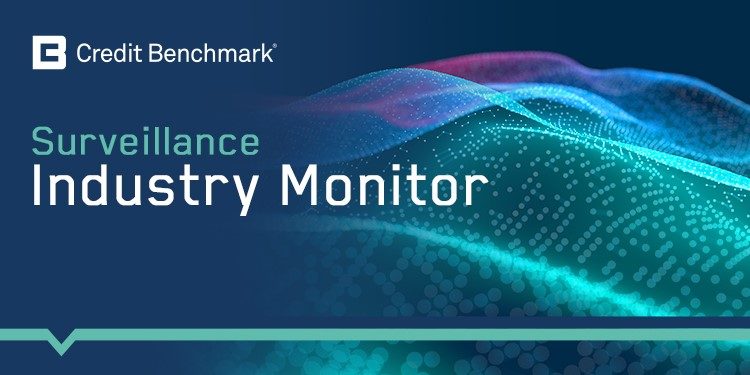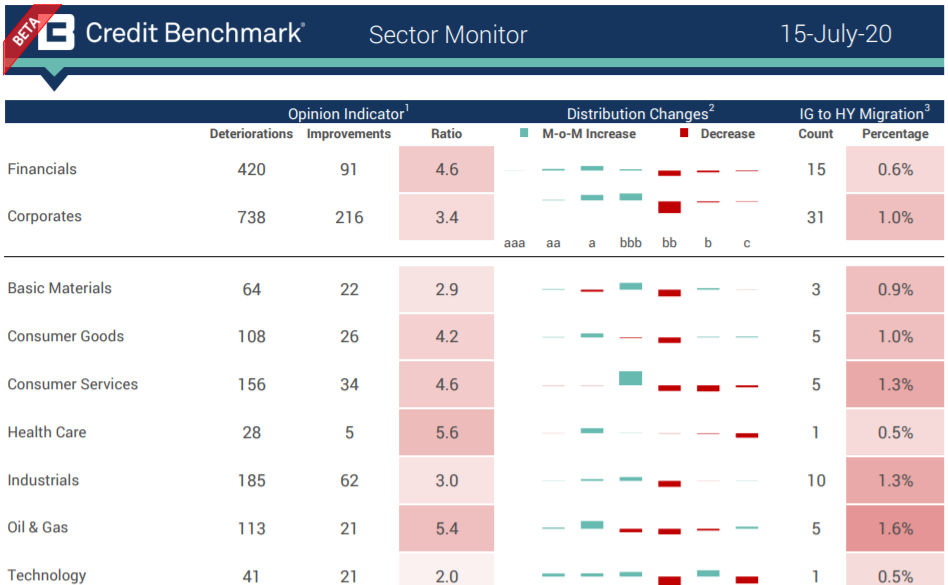Download the Mid-July Industry Monitor infographic below.
Credit Benchmark have released the mid-month industry update for July, based on a partial subset of the contributed credit risk estimates from 40+ global financial institutions.
In the update, you will find:
- Opinion Indicator: Assesses the month over month observation-level net downgrades or upgrades.
- Ratio: Ratio of Deteriorations and Improvements calculated as Deteriorations / Improvements
- Distribution Changes: The increase or decrease in the percentage of entities in the given rating category
- IG to HY Migration: The absolute and relative movement from investment-grade to high-yield
Compared to the figures seen in the June End-of-Month Update, the July Mid-Month Industry Monitor shows:
- The bias towards deterioration flagged by the opinion indicator ratio has increased slightly in Financials (up from 3.1:1 to 4.6:1)
- The percentage of Corporate Fallen Angels (Investment Grade corporate entities migrating to High-Yield) increased from 1.0% to 2.6%
- There is a 5.4:1 deteriorating/improving ratio for Oil & Gas entities (down from 7:1 in the flash update)
- US Oil & Gas showed the highest percentage of fallen angels, with 3.7% of IG entities migrating to HY
Credit Benchmark will continue to provide regular reports on these migration rates. If you have any questions about the contents of this update, please get in touch.
For full details, please download the Mid-July Industry Monitor infographic here:
Download Flash Update

